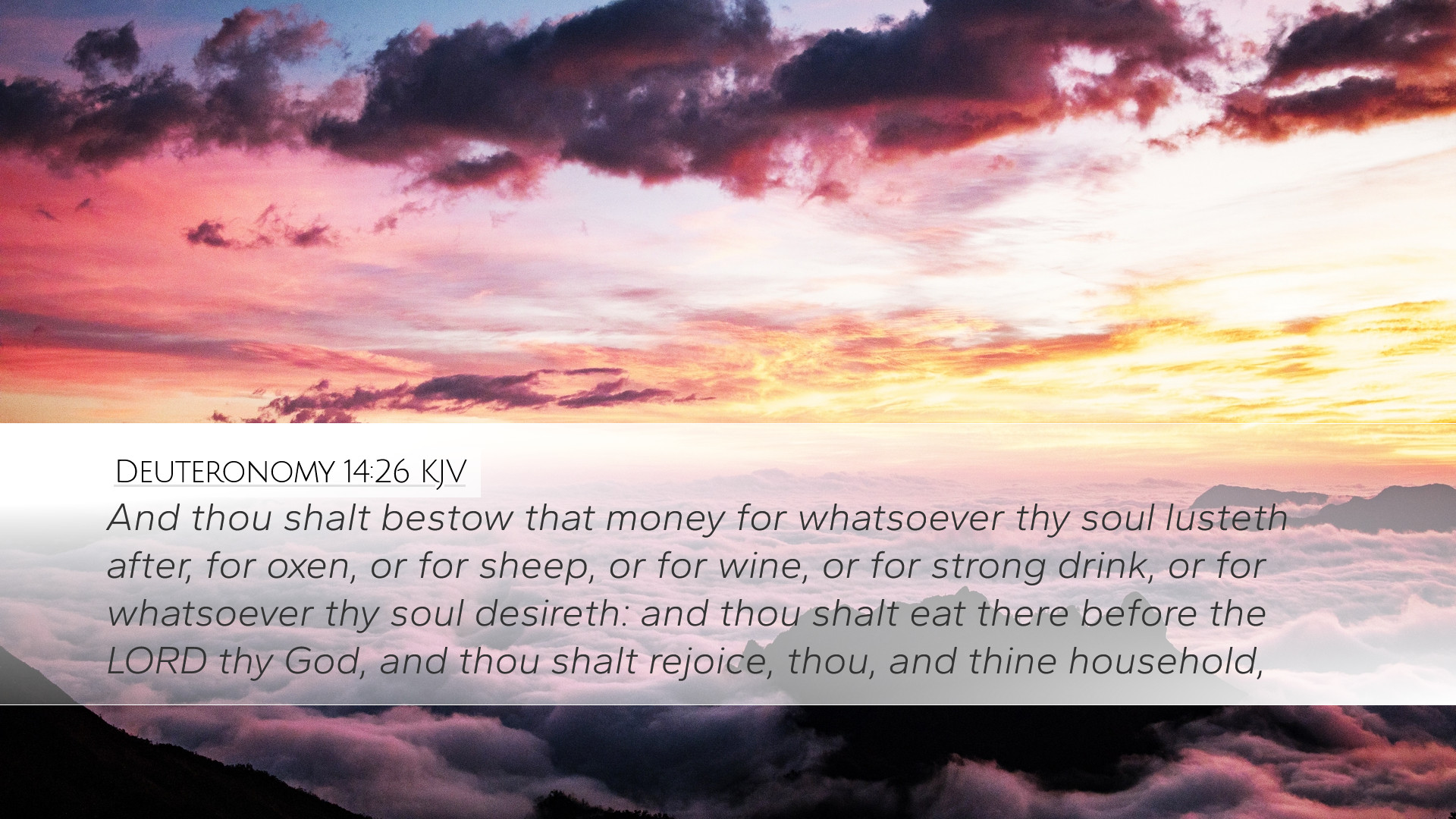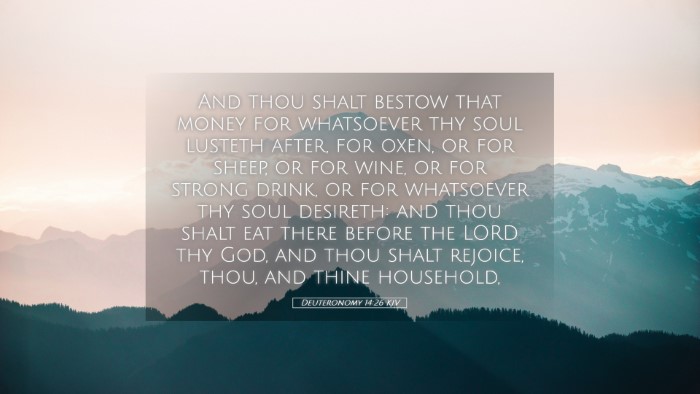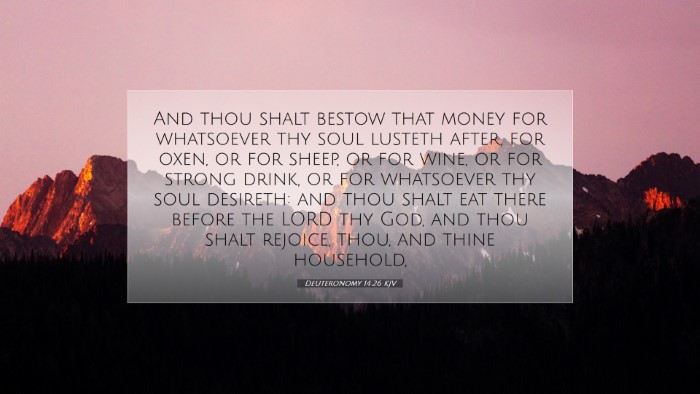Commentary on Deuteronomy 14:26
Verse (NIV): "Use the silver to buy whatever you like: cattle, sheep, wine or other fermented drink, or anything you wish. Then you and your household shall eat there in the presence of the LORD your God and rejoice."
Introduction
Deuteronomy 14:26 stands within the context of the laws concerning clean and unclean foods, as well as regulations regarding tithing and worship. This verse highlights the provision for the Israelites to celebrate before God by using a portion of their resources — specifically, their tithe — in a communal and joyous setting.
Historical Context
This instruction is given during Moses’ final addresses to the Israelites before they enter the Promised Land. It emphasizes the importance of gratitude, community, and worship in Israelite culture, reflecting God’s desire for His people to engage in joyous celebration in His presence.
Key Insights from Public Domain Commentaries
Matthew Henry's Commentary
Matthew Henry emphasizes that this verse illustrates the goodness and liberality of God, who allows His people to enjoy the finest provisions He offers. The act of using the tithe to purchase whatever one's heart desires indicates that worship is not solely about sacrifice but also about joy and abundance.
- Celebration of Abundance: Henry notes that the directive to purchase cattle, sheep, or wine showcases God’s intention for His people to celebrate His blessings. This is an expression of gratitude.
- The Importance of Joy: He points out that such feasting is not merely a meal but a worshipful act. The feasts remind the Israelites of God's care and provide an opportunity for communal joy and togetherness.
Albert Barnes' Notes on the Bible
Albert Barnes elaborates on the practical implications of using silver to procure food and drink for a feast. He underscores how this practice embodies the connection between faith and everyday life.
- Use of Resources: Barnes notes that the directive shows God's acknowledgment of the cultural practices of His people while transforming them into acts of worship. The silver symbolizes the material blessings God provides.
- Presence of God: Barnes highlights the significance of enjoying this feast "in the presence of the LORD," reminding the Israelites that God’s presence infuses their merriment with spiritual significance.
- Community Implications: The mutual enjoyment of the feast enhances community bonds and strengthens the faith of the participants, reinforcing the idea that worship involves the whole household.
Adam Clarke's Commentary
Adam Clarke offers a detailed analysis of the specific items purchased for the feast and their significance within Israelite worship and societal structure.
- Symbolism of Purchased Items: Clarke explains that cattle and sheep symbolize both the sustenance and the sacrificial system — combining elements of everyday life with spiritual expression.
- Wine as a Symbol of Joy: Clarke notes that wine represents joy in the Scripture, tying in with the cultural understanding of celebrations. The act of drinking wine in moderation during worship reflects God's provision and the delight found in His blessings.
- Generational Impact: Clarke also emphasizes how this practice instills in future generations an appreciation for God’s blessings and an understanding of the importance of rejoicing before the Lord.
Theological Implications
This passage holds profound theological implications regarding worship, community, and the relationship between material blessings and spiritual devotion.
- The Nature of Worship: Worship in the Old Testament is presented not only as a solemn duty but as a joyous celebration of God’s provision. This notion extends to modern believers, emphasizing that worship can and should involve joy and celebration.
- Material and Spiritual Harmony: The integration of material resources in acts of worship illustrates God's holistic view of human experience, where spiritual and physical realms intertwine. This highlights the idea that all aspects of life — including financial — belong under God's lordship.
- Community and Generosity: The verse promotes a communal aspect of worship, where families come together to celebrate the faithfulness of God. This model encourages modern congregations to foster a spirit of generosity and shared experiences in their worship practices.
Conclusion
Deuteronomy 14:26 offers a rich landscape of insights for pastors, students, theologians, and scholars. The synthesis of worship, community, and joy encapsulated in this verse echoes throughout the Scriptures and invites contemporary believers to reflect on the integration of all aspects of life into their spiritual practices. It challenges modern worshipers to recognize and celebrate the myriad ways in which they can express gratitude for God’s abundant provisions and to involve the community in that joyous expression.


